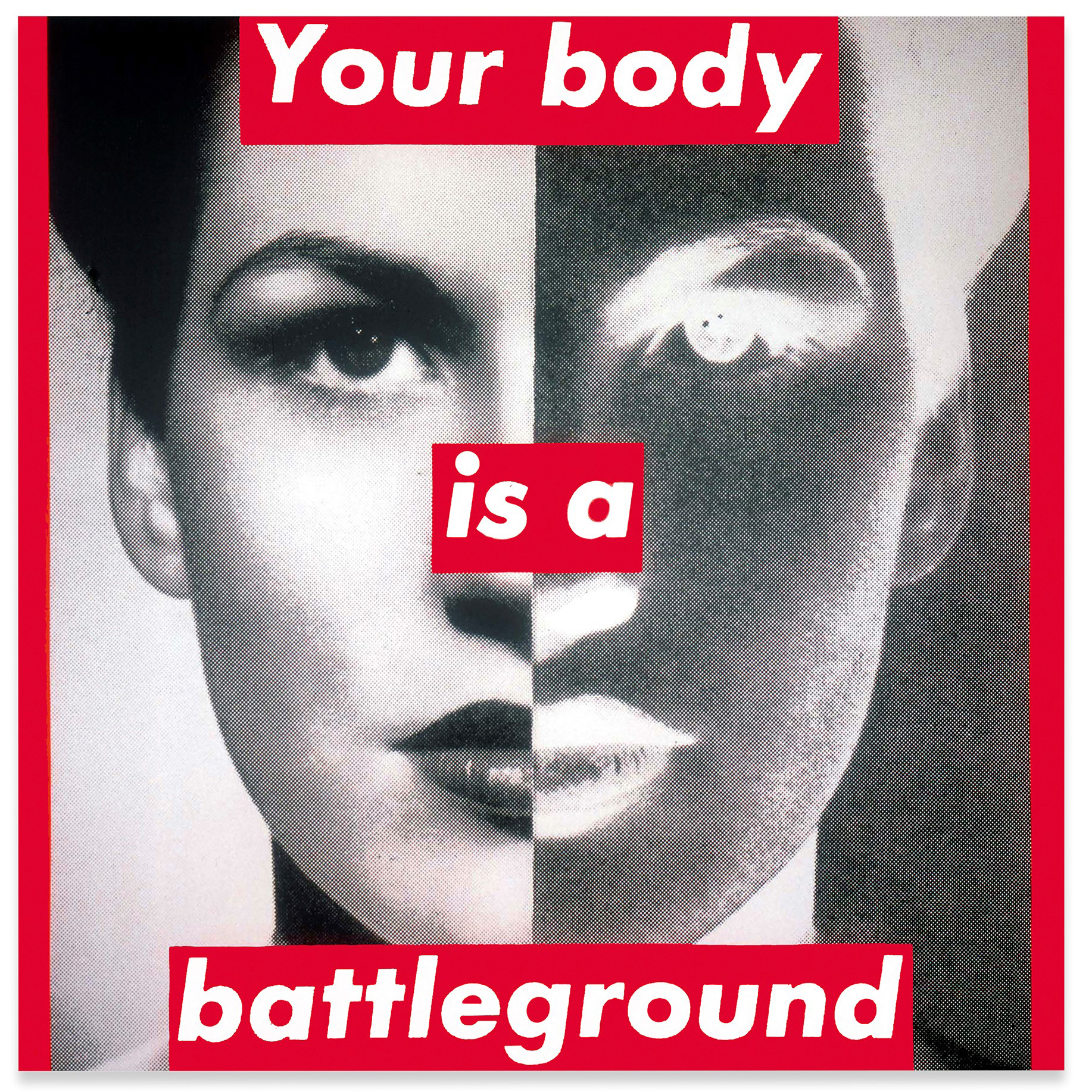Thanks to social media, we all aspire to speak in shareable aphorisms now, but Kruger was doing it decades ago, and her truth-to-power reflections on consumerism, sexism and structural violence speak to our moment as cogently and urgently as they did in the 80s. In the lead to and after the US’s historic decision to overrule Roe v Wade, Kruger’s iconic 1989 posters for abortion rights reappeared all over the country, charged with renewed urgency. Her signature wraparound, printed-vinyl, black-and-white slogans – embellished with deadpan smiling and frowning emoticons – were seemingly everywhere in 2022: they touched down loudly in Venice’s Arsenale, in a largescale commission for New York’s MoMA and all over the floor of Berlin’s newly reopened Neue Nationalgalerie. And Kruger’s aesthetic is everywhere, her vintage classic white-text-on-red-plus-found-monochrome-image template being by now a popular meme format as well as a T-shirt and poster fixture. Few contemporary artists have such cultural reach, so it’s a good thing the messages accompanying Kruger’s networked artworks are ethically unimpeachable.
Advertisement
Power 100
Most influential people in 2022 in the contemporary artworld
49

Barbara Kruger
Artist - Truth-to-power reflections on consumerism, sexism and structural violence
49 in 2022
- 202249
- 2021
- 2020
- 2019
- 2018
- 2017
- 2016
- 2015
- 2014
- 2013
- 2012
- 2011
- 2010
- 2009
- 2008

Advertisement